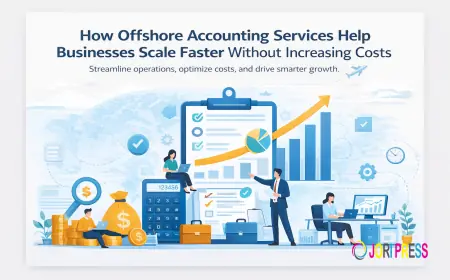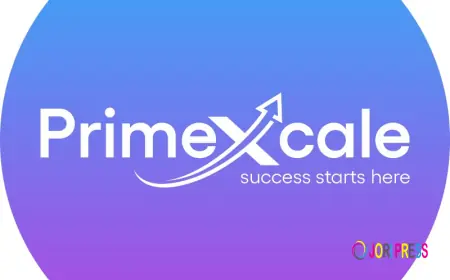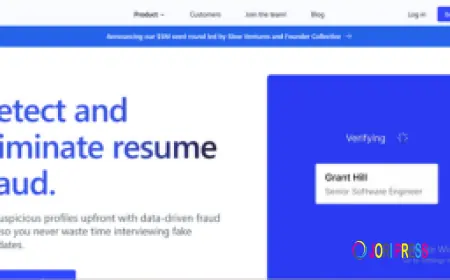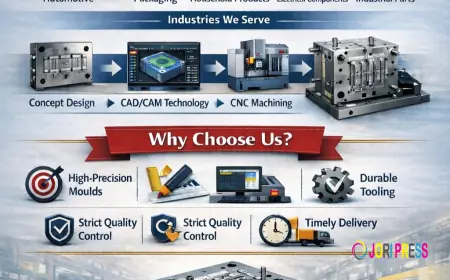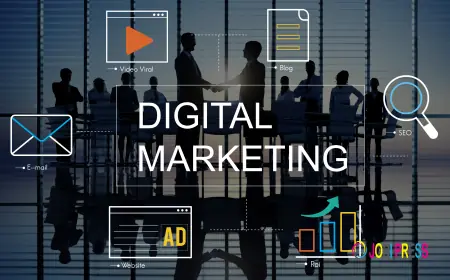Why E-Commerce Businesses Need Specialized Accounting Solutions
E-commerce businesses face unique challenges such as managing multiple revenue streams, inventory, and international taxes. Specialized accounting solutions are designed to address these complexities, offering features like seamless integration with e-commerce platforms, real-time financial reporting, and automated bookkeeping. These tools streamline operations, ensure tax compliance, and provide valuable insights for better decision-making. As e-commerce businesses grow, specialized accounting solutions scale with them, helping to maintain efficient cash flow management and reduce errors, ultimately supporting business growth and success.

In the rapidly evolving world of e-commerce, businesses face unique challenges that require tailored solutions. From tracking sales across multiple platforms to managing inventory and dealing with international tax laws, traditional accounting systems often fall short. This is where specialized accounting solutions come in. These solutions are designed specifically to address the complexities of e-commerce, ensuring accuracy, compliance, and streamlined financial management. Here’s why e-commerce businesses need specialized accounting solutions.
1. Complex Revenue Streams
E-commerce businesses often have multiple revenue streams. A typical business might sell products via its website, third-party marketplaces like Amazon or eBay, and even social media platforms like Instagram or Facebook. Each platform may have different payment systems, transaction fees, and refund policies. Managing these diverse revenue streams through traditional accounting software can be cumbersome, leading to mistakes or oversights.
Specialized e-commerce accounting solutions are equipped to handle multiple income sources, automatically reconciling transactions and providing a clear view of the business’s overall revenue. These solutions also track commissions and fees deducted by third-party platforms, ensuring that the business gets an accurate reflection of its earnings.
2. Inventory Management
Inventory management is one of the most critical aspects of e-commerce operations. Unlike brick-and-mortar stores, e-commerce businesses need to keep track of products across various channels and warehouses. This includes managing stock levels, tracking orders, and even handling returns. Without proper tracking, businesses risk overselling, stockouts, or losing valuable insights into their best-selling products.
Specialized accounting solutions integrate seamlessly with inventory management systems, ensuring that stock levels are always up-to-date. These solutions help e-commerce businesses avoid costly errors related to inventory, improving both customer satisfaction and operational efficiency.
3. International Tax Compliance
With the global reach of e-commerce, many businesses sell products in various countries. Each country has its own tax regulations, including sales tax, VAT (Value Added Tax), and import/export duties. Navigating these taxes can be challenging, especially when dealing with different tax rates, deadlines, and rules for cross-border transactions.
E-commerce accounting solutions are built to automatically calculate and apply the appropriate taxes for each country and region. These solutions ensure compliance with local tax laws, reducing the risk of costly fines and legal issues. Some accounting platforms even offer features to handle cross-border VAT filings, making international tax compliance much easier.
4. Integration with E-Commerce Platforms
E-commerce businesses typically operate on multiple platforms, such as Shopify, WooCommerce, BigCommerce, or Etsy. Each platform generates its own data, which can include sales, refunds, fees, shipping charges, and more. Managing and reconciling this data manually is time-consuming and prone to error.
Specialized accounting solutions offer seamless integration with popular e-commerce platforms. This allows for real-time syncing of financial data from all sales channels. Automating the data import process saves time, reduces human error, and provides businesses with an accurate, up-to-date view of their finances.
5. Financial Reporting and Analytics
E-commerce businesses need detailed financial reports to make informed decisions. Traditional accounting software may offer basic reports, but they are often insufficient for the complex needs of an online business. E-commerce businesses require insights such as profit margins by product, sales trends over time, and customer acquisition costs to make strategic decisions.
Specialized accounting software provides in-depth financial reporting and analytics specifically designed for e-commerce businesses. These reports help business owners understand which products are most profitable, identify cost-saving opportunities, and optimize pricing strategies. Advanced analytics also help businesses track key performance indicators (KPIs), such as customer lifetime value and return on investment (ROI) for marketing campaigns.
6. Automated Bookkeeping
One of the major advantages of specialized accounting solutions is automation. Traditional bookkeeping can be tedious and error-prone, especially when dealing with hundreds or thousands of transactions each month. Specialized solutions automate tasks like transaction categorization, bank reconciliations, and generating financial statements, freeing up time for business owners to focus on growth and strategy.
Automating bookkeeping reduces the risk of human error and ensures that financial records are always up-to-date. This not only streamlines operations but also makes tax season much easier, as all the necessary financial data is already organized and readily available.
7. Scalability
As e-commerce businesses grow, their financial processes become more complex. What worked when a business was small may no longer suffice as it scales. Managing an expanded product line, larger inventory, more sales channels, and an increasing customer base can quickly overwhelm traditional accounting systems.
Specialized accounting solutions are scalable, meaning they can grow with the business. These platforms offer flexible features and integrations that can accommodate the changing needs of a growing e-commerce business. Whether a business is expanding into new markets, adding new sales channels, or increasing its product offerings, a specialized accounting solution can adapt to meet these new demands.
8. Better Cash Flow Management
Cash flow is critical for any business, but it’s especially important in e-commerce, where businesses often deal with large upfront costs for inventory and shipping. Ensuring there is enough cash on hand to cover expenses is vital for ongoing operations.
E-commerce accounting solutions offer features that help businesses manage their cash flow effectively. Real-time tracking of sales, expenses, and payments allows business owners to understand their cash position at any given time. With automated reminders for upcoming bills and payments, businesses can avoid late fees and ensure they maintain positive cash flow.
Conclusion
E-commerce businesses face unique challenges that traditional accounting solutions are not equipped to handle. Specialized accounting software provides tailored features to manage complex revenue streams, inventory, taxes, and financial reporting. By automating tasks and integrating with e-commerce platforms, these solutions help businesses operate more efficiently and focus on growth. In today’s competitive e-commerce landscape, having the right accounting tools isn’t just a luxury — it’s essential for success.
Tags:
What's Your Reaction?
 Like
0
Like
0
 Dislike
0
Dislike
0
 Love
0
Love
0
 Funny
0
Funny
0
 Angry
0
Angry
0
 Sad
0
Sad
0
 Wow
0
Wow
0
Related Posts
Are AI powered Real estate Platforms actually improving...
Originatesoft Kolkata Feb 23, 2026 0 1.6k
The Most Common Wheel End Failures and How Regular Insp...
2020 Truck and Tra... Feb 23, 2026 0 2.2k


